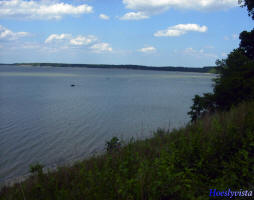 Relationships between sectoral policies and agricultural water use in the Mediterranean countries
Relationships between sectoral policies and agricultural water use in the Mediterranean countries
- This project seeks to contribute to the sustainable management of water
resources in Mediterranean countries through integrated, multidisciplinary
planning. First, the project aims to identify the policy factors that
encourage farmers to use large quantities of water, then to evaluate the
technical and economical feasibility of decreasing agricultural water
demand.
- Finally, the project will attempt to identify the policy factors that
could be modified to this end in a range of sectors.
- More specifically, the study will embark on the following tasks :
• Investigate the full range of sectoral policies
(agriculture, energy, industry) which directly or indirectly influence
agricultural water demand in seven Mediterranean countries.
• Prepare a series of "horizontal" studies analysing
salient sub-themes related to policy and agricultural water use. These
studies will refer to the Mediterranean basin as a whole.
• Assess the feasibility of introducing policy
modifications to decrease the consumption of water in the agricultural
sector. These analyses will specifically examine the impediments to such
change and the possible collateral impacts on environmental and
socio-economic factors.
• Provide results and tools which allow European,
national and regional policy-makers to take concrete steps towards
sustainable water management in the agricultural sector.
• Promote the use of inter-disciplinary approaches to
problem-solving and regional collaboration
| Project number | IC18-CT-1997-0165 | ||
|---|---|---|---|
| Subject(s) | WATER DEMAND , no translation available | ||
| Acronym | POLAGWAT | ||
| Geographical coverage | France, Israel, Italy, Portugal, Spain, Tunisia, Egypt, Turkey | ||
| Budget (in €) | n/a | ||
| Programme | INCO MED (FP4) | ||
| Web site | http://www.jrc.es/projects/polagwat/ | ||
| Objectives | - Systemic National Case Studies : - Case studies will be carried out in Portugal, Israel, Turkiye, Spain, Italy, Tunisia and Egypt. Each partner will conduct a retrospective analysis of the present conditions in their own country and cover : a) Overview of the Water Uses in each Country, including recent trends, b) Detailed Information about the Agricultural Sector and its Use of Water, c) Assessment of the Techno-economic Feasibility of Reducing Water Use, d) Identification of the Institutional and Private Actors, e) Assessment of Existing Programmes to Improve the Efficiency of Agricultural Water Use - Systemic Study at Mediterranean Level : - At the same time, a more general systemic study will be conducted for the Mediterranean basin as a whole. This study will place itself at a more general level and focus on the most important issues for the region. - Thematic Studies : - These "horizontal" studies analyze in greater depth some of the most important factors influencing water use in agriculture in the Mediterranean context. They benefit from specific information acquired in the national case studies but also provide further insight, drawn from a broader geographical experience, into the factors at play in each country. - Prospective analysis on agricultural water use in the Mediterranean : - In this phase, the partners will assess the possible impact of policy changes on agricultural water use. They will develop and analyse scenarios to examine the costs and benefits which might accrue from modifying national or local policy in one or more sectors. These scenarios will be based upon a reduced hypothesis set generated by the results of the various systemic case studies and the collateral information collected in the "horizontal" thematic studies |
||
| Results | - The final project report will include an integrated picture of the possibilities for introducing improved practices through policy changes. It will compare the results and conclusions of the individual systemic, thematic and prospective analyses. It will also provide a methodological framework for follow-up and assessment of multi-sectoral policy relations and their effect on agriculture water use. Most importantly, it will provide decision makers with a critical analysis of solutions, which could assist them in moving towards integrated policy development to promote more sustainable water use. - This project will deliver both scientific results, in the form of reports, and increased levels of scientific capacity in the Mediterranean countries thanks to cooperation in this project. |
||
| Period | [01/04/1998 - 31/03/2001] | ||
 you are not logged in
you are not logged in





